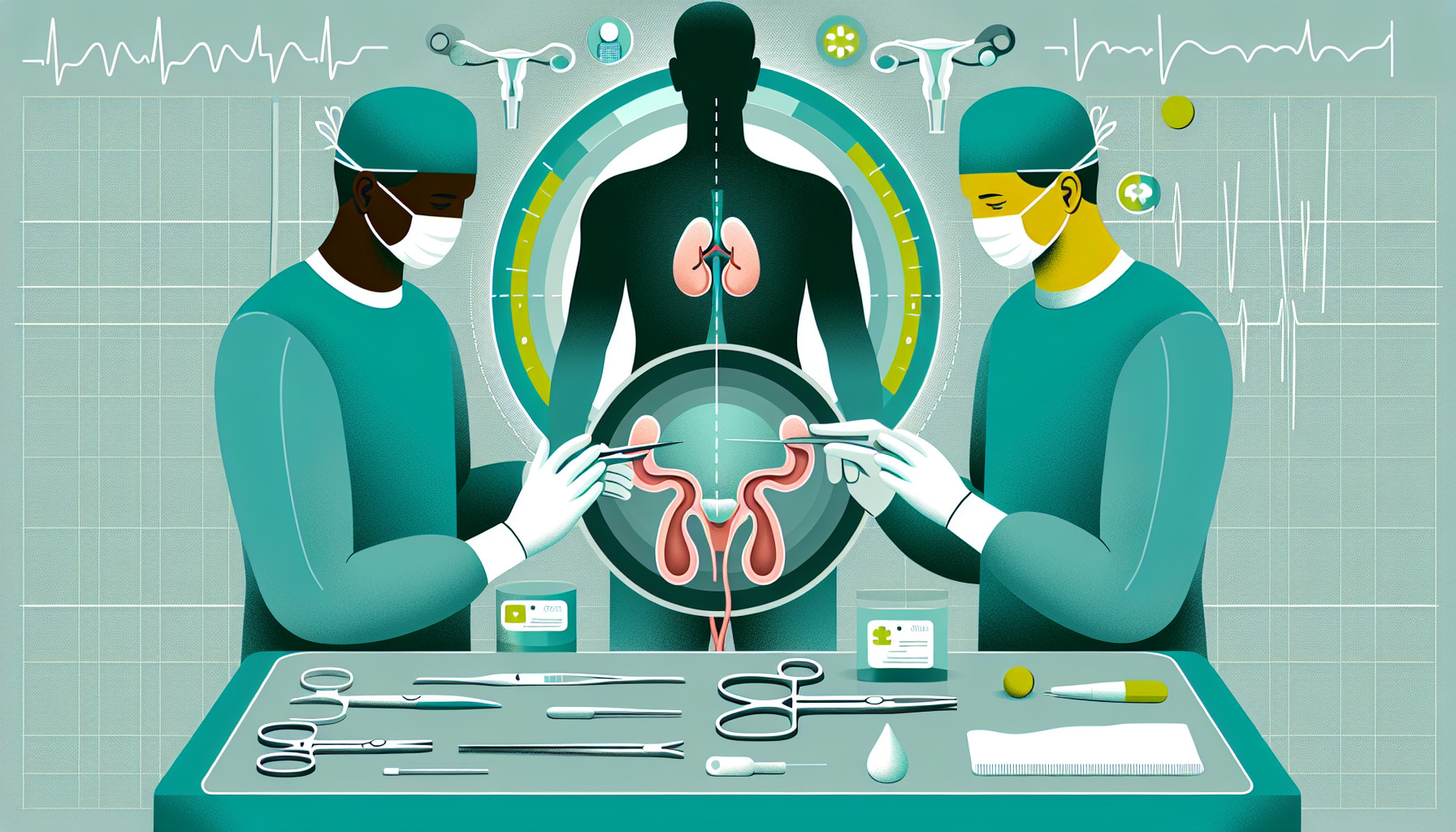Our Summary
This research paper looks at the safety and effectiveness of three types of surgeries used to treat bladder cancer: robot-assisted radical cystectomy (RARC), laparoscopic radical cystectomy (LRC), and open radical cystectomy (ORC).
The researchers reviewed various studies on these surgeries. They found that both RARC and LRC had several advantages over ORC. These included a longer operation time but less blood loss, lower rates of blood transfusion, quicker recovery time in terms of returning to a normal diet, less complications, and fewer instances of cancer remaining at the edge of the tissue removed during surgery.
Among the three, RARC was found to have significantly lower transfusion rates, fewer complications, and lower rates of cancer remaining at the edge of the tissue removed compared to LRC.
Overall, the study suggests that both LRC and RARC could be safer and more effective alternatives to ORC for treating bladder cancer. In particular, RARC could potentially lead to better patient outcomes for those with muscle invasive or high-risk non-muscle invasive bladder cancer.
FAQs
- What are the three types of surgeries used to treat bladder cancer discussed in this research paper?
- How do the safety and effectiveness of RARC and LRC compare to ORC in treating bladder cancer?
- Among RARC, LRC, and ORC, which surgery method is suggested to potentially lead to better patient outcomes for those with muscle invasive or high-risk non-muscle invasive bladder cancer?
Doctor’s Tip
A doctor may advise a patient undergoing cystectomy to consider robot-assisted radical cystectomy or laparoscopic radical cystectomy as they may have advantages such as less blood loss, quicker recovery time, and lower rates of complications compared to open radical cystectomy. It is important to discuss all options with your healthcare provider to determine the best treatment plan for your specific situation.
Suitable For
Patients who are typically recommended cystectomy include those with muscle invasive bladder cancer, high-risk non-muscle invasive bladder cancer, or recurrent bladder cancer that has not responded to other treatments such as chemotherapy or radiation therapy. These patients may benefit from a cystectomy to remove the bladder and potentially prevent the spread of cancer to other parts of the body. Additionally, patients with certain types of bladder cancer that are aggressive or have a high likelihood of recurrence may also be recommended for cystectomy.
Timeline
Before cystectomy:
- Patient is diagnosed with bladder cancer and undergoes various tests to determine the stage and extent of the cancer.
- Patient discusses treatment options with their healthcare team, including the possibility of cystectomy.
- Patient undergoes pre-operative preparations, which may include imaging tests, blood work, and consultations with various specialists.
- Patient may undergo neoadjuvant chemotherapy or radiation therapy to shrink the tumor before surgery.
- Patient undergoes the cystectomy surgery, which involves removing all or part of the bladder and possibly nearby lymph nodes.
After cystectomy:
- Patient stays in the hospital for a period of time to recover from the surgery.
- Patient may experience pain, discomfort, and changes in urinary function following the surgery.
- Patient may require a urinary diversion procedure to create a new way for urine to leave the body.
- Patient undergoes follow-up appointments with their healthcare team to monitor their recovery and address any complications.
- Patient may need to make lifestyle changes, such as adjusting their diet and managing potential side effects of the surgery.
- Patient may undergo additional treatments, such as chemotherapy or immunotherapy, to prevent the cancer from returning.
- Patient undergoes long-term monitoring to check for any signs of cancer recurrence.
What to Ask Your Doctor
- What type of cystectomy surgery do you recommend for my specific case and why?
- What are the potential risks and complications associated with the surgery?
- How long is the recovery period expected to be and what can I expect during that time?
- What are the potential long-term effects or changes in quality of life after the surgery?
- Will I need any additional treatments or therapies after the cystectomy?
- How experienced are you and your team in performing this type of surgery?
- Are there any alternative treatment options available for my condition?
- What is the expected success rate of this surgery in terms of removing the cancer and preventing recurrence?
- How often will I need follow-up appointments or tests after the surgery?
- Are there any specific lifestyle changes or precautions I should take after the surgery to promote healing and recovery?
Reference
Authors: Yang Z, Dou X, Zhou W, Liu Q. Journal: Int Braz J Urol. 2024 Nov-Dec;50(6):683-702. doi: 10.1590/S1677-5538.IBJU.2024.0191. PMID: 39172861
